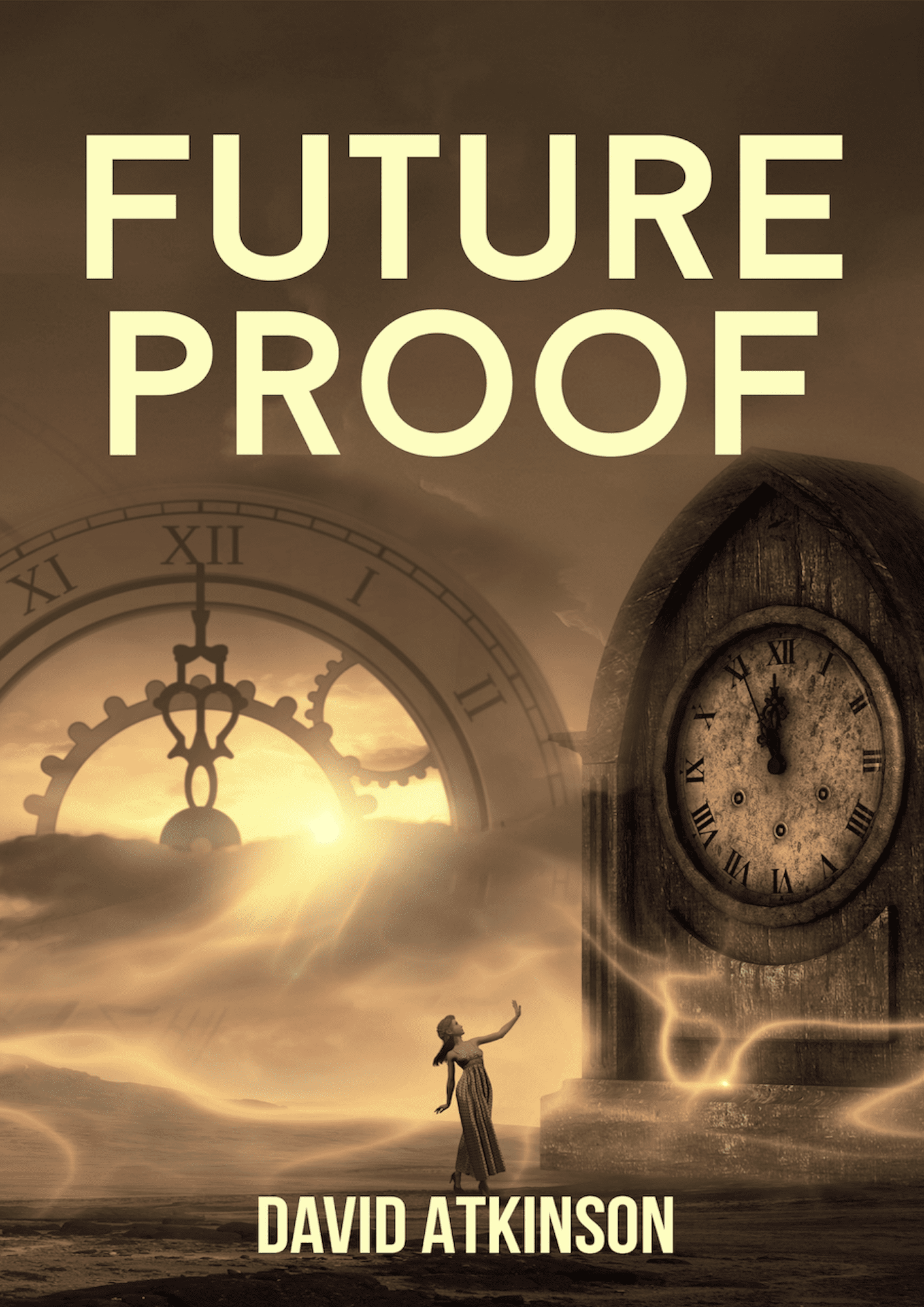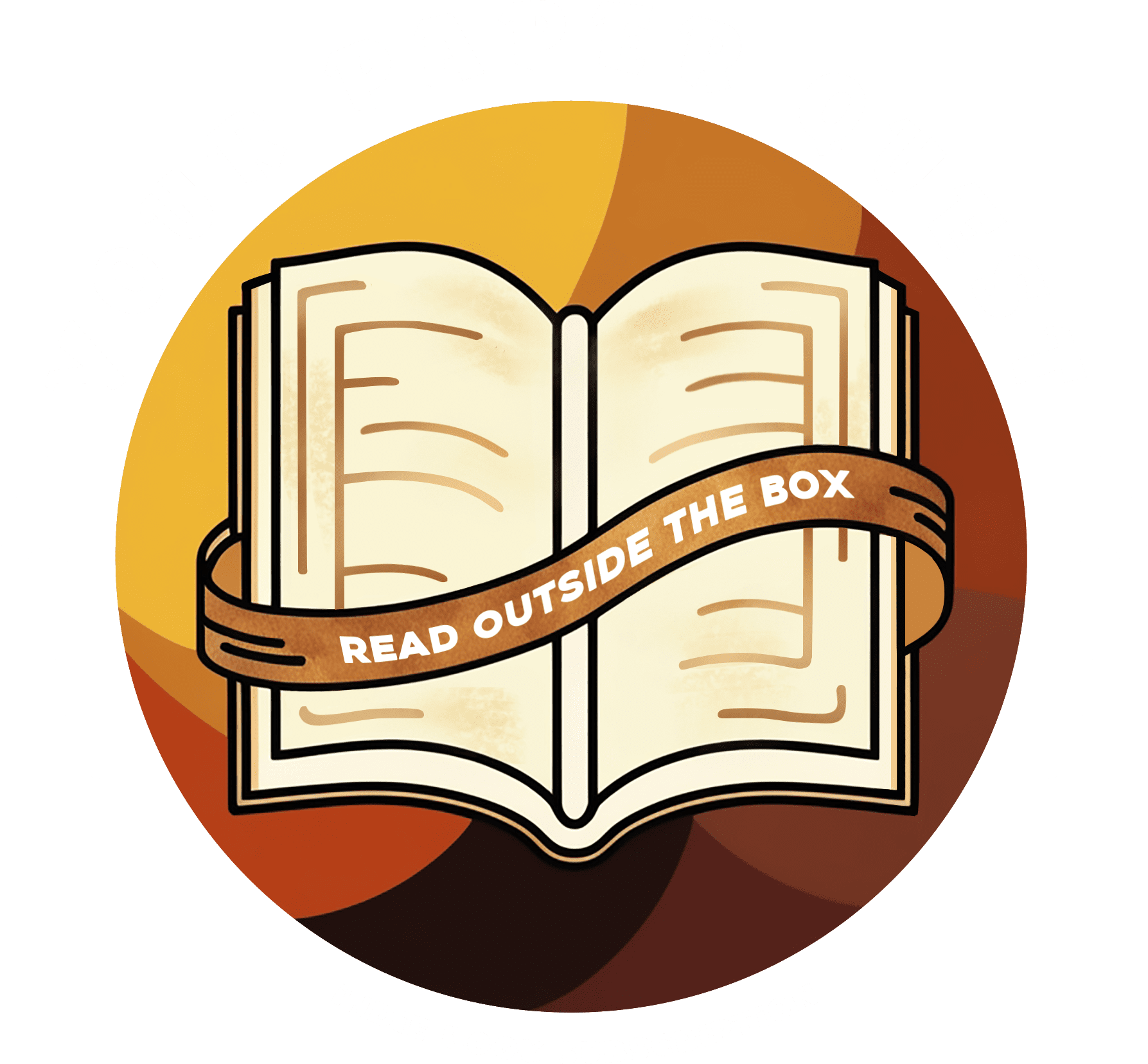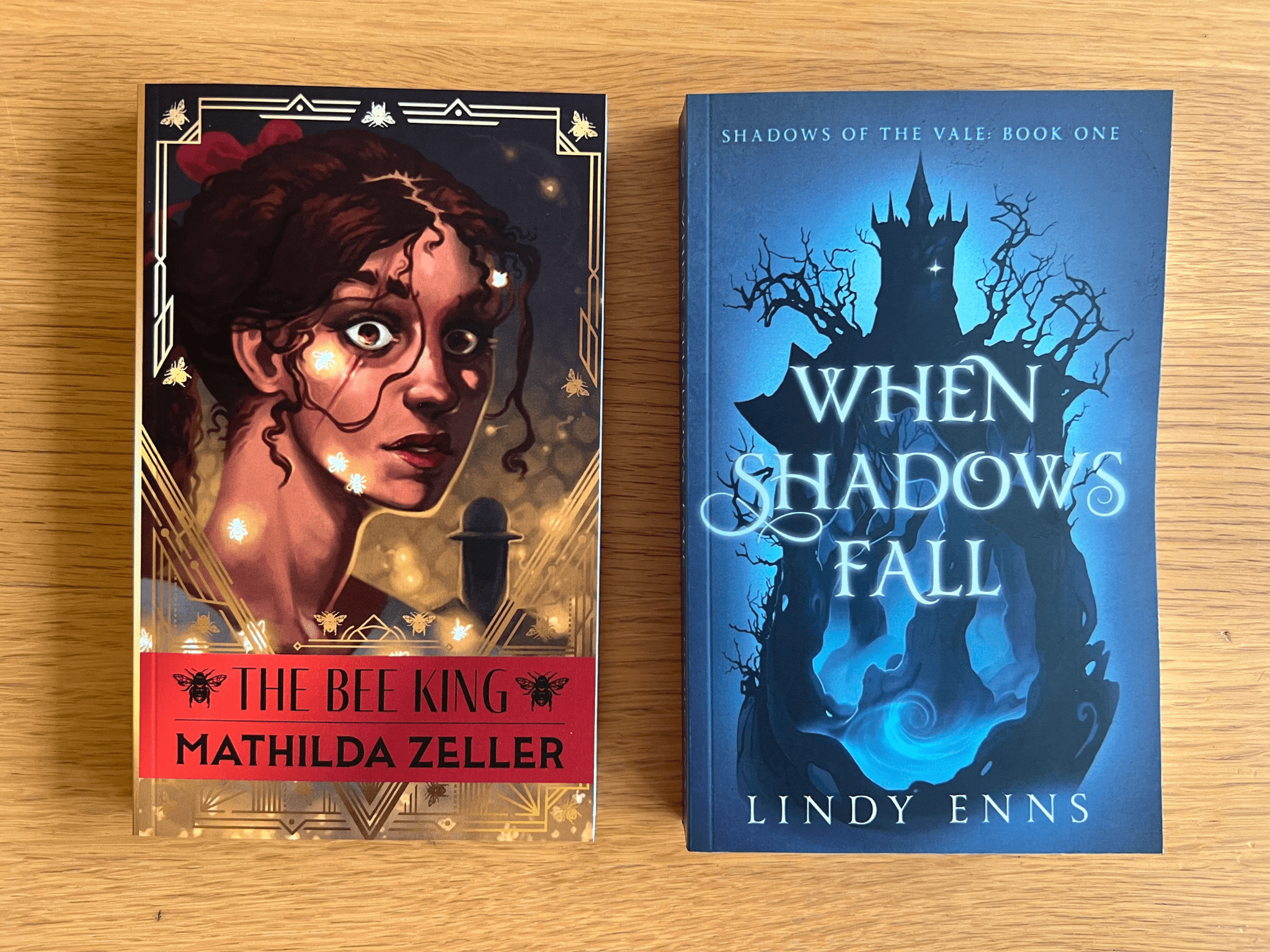David Atkinson
FUTURE PROOF
I wrote my first story in my Primary 5 class, and my teacher, Mr Palmer, decided it was so good that he read it to the class. (I was so horrified it put me off writing for years!!) It was a complete rip-off of Kidnapped by Robert Louis Stevenson, and either my teacher was not versed in the classics, or he’d failed to spot the obvious plagiarism!
I started a novel during my last year at high school, sitting in the library of an evening scribbling words into a lined A4 workbook. I never finished it, but I realised how hard writing a book would be. Nearly twenty years passed before I rediscovered the joy of creative writing. I joined an amateur theatre group and started writing scripts.
The process was fun and competitive as two full-time journalists were used to having their own way with the group’s scripts, and the best lesson I learned was that, in creative writing, less is more. You might notice that my books don’t have long descriptive passages describing settings and places. Unless it’s integral to the plot, I don’t think readers need to know the coffee table’s colour or the curtains’ thickness. My writing is also dialogue-heavy, again a throwback to my script writing learning curve.
My novel writing really started when, at work, I was put on a project that involved sitting in a room all day waiting for a new computer system to do something. To this day, I’m not sure what it was supposed to do, as it never did it. During this period of forced inactivity, it occurred to me that while I had all this downtime, I could be writing a novel. So that’s what I did. I finished the first draft in six months, polished it, got a few people to read it, and then re-wrote the whole thing based on their comments. After a few more drafts, I searched for an agent/publisher with no idea what that entailed.
Six months of rejection and discouragement almost made me give up, like so many writers. Most of the time, agents blanked me completely or sent back a standard response. The worst I got back was an agent’s two-word email saying, “Oh, Dear,”. I have kept that one!
On the brink of surrender, one morning, I received a letter from Buried River Press, a small traditional publisher based in Clerkenwell London, offering me a two-book contract with the princely advance of £250!
Love Byte was published in late 2014, and I became a proper author. The book was shortlisted for Romantic Comedy of the Year by the wonderful Romantic Novelist Association (RNA). I turned up at the award ceremony with no idea what to expect.
Some nominated authors arrived in limousines with an entourage of managers, editors, agents, and PR experts in sharp suits sporting Louis Vuitton handbags. (These women were earning seven figures – the pop stars of the literary world). I was the only man there. Love Byte didn’t win, but it wasn’t about that. I’d been given a glimpse of a world I didn’t know existed.
After the RNA nomination, the book appeared in Waterstones and other brick-and-mortar stores, which was really nice. The follow-up book didn’t do as well, partly because the publisher was in the process of going out of business. Editors and staff began to vanish as redundancy notices were issued, and the book went out not as polished as it could have been as the publisher tried to complete its statutory obligations. On the back of Love Byte, I did manage to secure another publisher, One More Chapter, an imprint of Harper Collins, which was a whole different ball game in terms of scale. I have a book due out with them later this year, (Quiet Kisses). I did offer them Future Proof, but at the time, not unreasonably, wanted me to finish the book I was contracted to deliver.
I decided to publish Future Proof myself, partly because I was right into it then and partly because I wanted to see if I could do it all for nothing.
The biggest difference is the obvious one: everything is on you. You have to write the book, edit it, proofread it, format the manuscript, and design the cover. (YouTube videos are a godsend.) You must then upload it to Amazon (other platforms are available) and release it. But, by far, the hardest bit is marketing.
I had a wonderful Beta reader, (Stuart) who is also a fellow author, and we regularly swap manuscripts and have built trust so that we can be brutally honest with each other, which is what is needed. It helps that he also understands the creative process. I had been used to world-class editors giving me feedback on the text; now I just had Stuart and my own eyes. I spent a good few months editing the manuscript, re-writing sections, cutting out fluff and ensuring the work’s continuity was sound. Being a time-travel novel, this is especially important. I also decided it would be a good idea to write and release an album of original songs to accompany the book, the idea being that each song would resonate with a particular section of the book.
Ambitious? Certainly. Stressful? Definitely! I also made the error of using a stage name for the album (Future Proof by Memerine) rather than my own name. But every day’s a school day. I set up (for free) a small publishing company called Collective Charm Books because I felt it looked better than my name as publisher. It also dovetailed in with the record label I’d set up, Collective Charm Records (for free) to release the music onto the usual streaming platforms and a YouTube page for the music. Looking back, I can see that the biggest hurdle was and remains social media. I’m still not that savvy – sure, I had a Facebook author page, a basic website that I deleted as nobody ever visited it, and the usual Amazon author page. But in truth, this was not enough. Also, as I’d decided that the book would have to wash its own face, I had to wait until it had accumulated some sales before I had any funds to spend on advertising.
Again, I watched loads of videos and read dozens of articles, but even then, it was complete trial and error (mostly error) in trying to get the word out about the book. Ten Thousand Books are published EVERY SINGLE DAY. That’s an astronomical number. So, it is easy for a book to get completely lost. I had this naïve view that writing a good story was all that you need to do. If you write a compelling narrative, people will find it, but you need to learn to promote yourself and the book – something many authors are uncomfortable with, me included. I picked up a couple of ‘author champions’ along the way. People who loved the book so much that they talk about it everywhere. I don’t know them, but they are completely wonderful, and I love them to bits. The best thing about being a published author is the reader’s feedback. When someone you have never met and probably never will meet writes a review of your book, that is pretty amazing. It’s better if they love it, but even negative reviews can be useful.
Growing up, I was a huge fan of the classics, Dickens, Hardy, Hemingway, and the Brontes. We used to get given these tomes to read in English class at school, and whilst most of the kids groaned, I secretly rejoiced as I just loved the language and the structure of these books. I don’t pretend for one second to be able to mimic anything these goliaths of literature achieved, but they gave me a wonderful introduction to descriptive narrative and damn good stories.
Latterly, I have a few authors I love and learn from, the wonderful Keith A Pearson (we occasionally swap emails now, and I am just so honoured that he takes the time to do this!). Mhairi MacFarlane for her no-nonsense telling of romantic comedy in a way I wish I could emulate. There are others: RR Haywood for his breathtaking pace, Adrian Tchaikovsky for plotting complexity and Rowan Colman for the heart she inserts into her stories. It is worth remembering that an author is also a reader. I read a lot.
First of all, the story is everything; just like in music, to me, the melody is everything. You have to write a compelling story that people will relate to and enjoy being part of. All this rubbish you read about authors needing to ‘write to a market’ and ‘write to your readers’ is crazy. You can only ever write for yourself. Write the story that you would like to read. Hopefully, you’ll appeal to others who enjoy what you like by doing that. Anything else is a distraction.
The big thing at the moment is scammers. Indie writers are exposed to this in a huge way, with people offering to market your book (they won’t) and vanity (hybrid) publishers. These are ‘publishers’ who offer you a ‘shared cost’ contract. There is no sharing. They will charge you a lot of money to do things you can do for nothing, and they profit from you, not from book sales. Often, they take your rights, too, which means you have no control over anything. The golden rule if you are looking for a publisher is that publishers pay you – you don’t pay publishers.
The other thing to bear in mind is that however long you think it will take to write and publish your book, double it. Also, becoming your own marketing executive for your book will seriously interrupt your writing time. I work full-time at something else (like most writers) and have a young family to consider. This is something I really hadn’t factored into the whole self-publishing. Even then, I still believe it was worth all the effort. Plus, now that I’ve been on that journey once, the next time will be easier because I have learned a lot, am still learning a lot.



